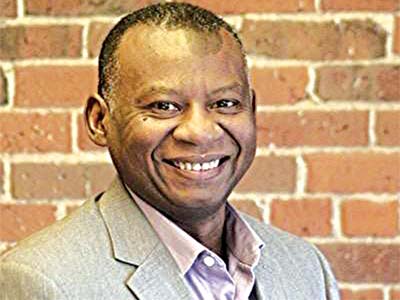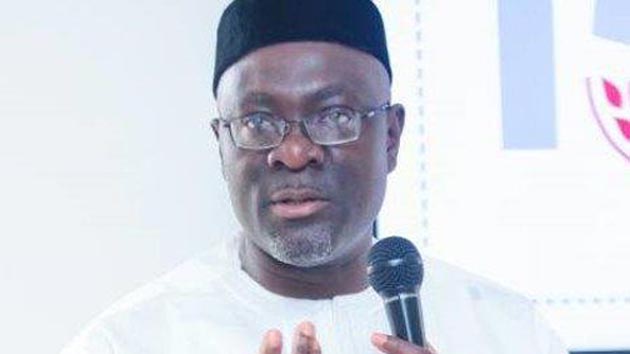
IMMEDIATE past President Goodluck Ebele Jonathan it was under whom Nigerians had a “real” taste of the application of the Presidential Veto.
Concluding a long process of amending the 1999 Constitution, the National Assembly (immediate last Session) had hashed out a hail of amendment bills it presented to the President to be signed into Law.
Since 1999, the legislature had taken up the task following the failure of National Dialogues to resolve the matter the many constitutional conflicts around the 1999 Constitution.
The Jonathan presidency did study it for some time. Thereafter, the President refused to sign. In some advanced democracies like America, the State House would actually have stamped it “VETO” to signal that the President /forbade /rejected/withheld assent.
“I am of the respectful view that I should withhold assent until it can be shown….” the President wrote highlights of the unacceptable amendment provisions; also stating grounds for disagreeing and sending the bill back.
A necessary advisory
The points Jonathan raised must now be acted upon as the 8th Assembly swings again into the same business, which is more than one month following the inauguration of Constitution committees by both the Senate and House of Representatives.
And Legislators have to think through Jonathan’s points of objection to avoid his successor, President Muhammadu Buhari also taking the same dim view of the controversial entries.
It would be recalled that the 7th Assembly made a move to override Jonathan only to drop it when they saw it would be impossible for them to mobilize the required majority.
Strikingly, the Present Senate President, Bukola Saraki, Speaker of House of Representatives, Yakubu Dogara, and even the then and now Senate Deputy President, Ike Ekweremadu, were members of that Assembly.
This time, they have to act in a manner showing balance, maturity and societal progress, which has been lacking since 1999 when the National Assembly took up constitutional amendments and without break, thus making the exercise something of a perennial fixture of Nigeria’s 4th democratic dispensation now in 17-years uninterrupted run.

Why Jonathan withheld assent
Notable among the grounds of the former President’s objections to the bill is the provision stripping the President of the power to sign the Constitution amendments by which they become law, an Act.
The 1999 Constitution, like its original 1979 version, and from which it draws much of its life, guarantees checks and balances among the tiers of the government under a Doctrine of power separation, especially between the Executive and the Legislature.
The Jonathan government argued that the legislature over reached itself in seeking to abridge Presidential power especially power to “check and balance” the lawmakers.
The former President therefore, cited the vetoed amendments section by section, and why they did not meet the provision of section 9(3) of the Constitution, which stipulates that four-fifths of members of both Houses must agree to the amendments.
The amendments weren’t backed by “credible evidence” of the Constitution-sanctioned support, he declared.
The 1999 Constitution under section 9 (3) provides:
 “An Act of the National Assembly for the purpose of altering the provisions of this Section, section 8 or chapter IV of this Constitution shall not be passed by either House of the National Assembly unless the proposal is approved by the votes of not less than four-fifths majority of all members of each House, and also approved by a resolution of the house of Assembly of not less than two-thirds of all states.”
“An Act of the National Assembly for the purpose of altering the provisions of this Section, section 8 or chapter IV of this Constitution shall not be passed by either House of the National Assembly unless the proposal is approved by the votes of not less than four-fifths majority of all members of each House, and also approved by a resolution of the house of Assembly of not less than two-thirds of all states.”
Among other amendments, separation of the office of the Attorney-General of the federation and Minister of Justice (both are currently held by one Minister) (Commissioner at state level), stripping the President the power to pick him/her on advise vested in the National Judicial council (NJC) (Governor/state Assembly at state level) – is indeed contentious.
Other contentious provisions included creation of the office of Accountant-General for the Presidency as distinct from the subsisting office of Accountant General of the Federation occupied by one Minister, right to free basic education and right to free maternal care, which Jonathan rated as “open-ended.”
If, for example, right to free maternal care was constitutionally approved without restrictions, private institutions will be obliged to offer free maternal care services.

The AGs debate
Opinions on separation of Attorney-General and Minister of Justice (AG) and Accountant-General (AG) are pretty sharply divided. And aside political exigency, as was the case as it played out at the 2014 National Conference, their separation would be difficult to pull through.
In the case of Justice, lawyers speak of the cost of maintaining two offices both of which would, at the end of the day, be engaged in administering and dispensing legal responsibilities to both State and country and the confusion it would create.
Those in favor of keeping the offices as one say they are interwoven and demands holistic handling.
There will be friction, according to constitutional lawyer and Senior Advocate of Nigeria (SAN), Chief Mike Ahamba. He says what the Constitution ought to ensure is security of the AG’s tenure.
“I hold the position that no Attorney-General should be sacked either by the President or the Governor without input from the Senate and state House of Assembly. The termination of their office is, to me, likely to affect their function.
Some other legal minds, however, argue that a separation would make the AG free from being beholden to the President (Governor at the state) who appoints him.
This will enable him (AG) to play his/her proper role as the country’s chief law officer, not the presidency’s lawyer, while the Minister/Commissioner of Justice would then be left to do the bidding of the President/ Governor. But, the question is, who appoints the AG.
As for the Accountant-General of the Federation, voices from the financial sector tend to be more on the side of keeping them one, rather than separate.
Issues canvassed on the need for separation of the offices seem already taken care under the existing arrangement, especially in financials, the political side of the controversies could never end.
The buck stops on the table of the President: state Governors too. Because the country often finds them dishing it out as they like, protests against government cuts almost across board.
Even governors often protest federal government management of common financials.
Legislature and failure of National Dialogues to resolve national questions
Except late dictator, Gen. Sani Abacha’s constitutional conference, that sanctioned six geo-political zones into which the country is now politically classed, not much can be said of military-organized national constitutional dialogues.
Gen. Abdulsalami bequeathed the 1999 Constitution, after minor adjustments of the 1979 document.
Till now, the military-imposed Constitution has hardly changed despite the National Assembly’s endless task of amending or seeking to retouch the document.
Issues around the structure of the document, along with its many inadequacies are almost now beyond resolution no matter how hard the Legislature tries to amend it.
The 7th Assembly worked hard and long to make the Constitution implementable. It held public hearings, town hall meetings and entertained a hail of private-member and public bills.
It pulled well beyond the levels achieved by previous efforts especially the lower House, the Reps, which had undertaken public sessions and town hall meetings beginning from the 2nd Assembly Session in 2003.
They even attempted to accommodate some aspects of the recommendations of the 2014 confab; example, separation of the office of Attorney-General of the Federation from Minister of Justice (AG), and Accountant of the Federation (AG).
The 8th Assembly would need to consider the vetoed provisions more carefully, and make useful changes without necessarily abridging the President’s constitutional power of assent.
Indeed, the greater part of the 8th Assembly committee work on the 1999 Constitution is go to great lengths to accommodate the 450-member 2014 confab list of over 40 decisions.
Lately, there have been increasing calls on the Buhari government to implement them; some say wholly, others partly.
Still, other canvassed issues may not sail through at the legislature. Former Secretary-General of the Commonwealth, Chief Emeka Anyaoku, for example, urges restructuring of the country into a federation of six regions based on the existing six geo-political zones.
The Southern parts of the country mostly canvass structuring or “true federalism issues.
Up North, it is mostly skepticism about “true federalism” especially as canvassed down South being one in which derivation will be a major determinant in allocating revenues.
In general, skepticism up North about restructuring draws from concerns that derivation will destroy “balanced federation” and “even development” of the country based on the common sharing of “federal funds” particularly from oil, the Nation’s economic mainstay.
Here, for example, is how a public commentator Mohammed Haruna wrote about it in his People and Politics column titled, “as we embark on another constitutional amendment” on the pages of The Nation on February 10 (2016): “Let’s face it. The alliance (of South-south, middle-belt and South-west on resource control) was not sincere, and could not have been, because its members, like everyone else in the country, knew their region’s lives almost literally depended on oil, most of which come from offshore.
“And as long as oil remains the source of more than 90 percent of public revenue, the South-south would be unrealistic to expect honest support from its apparent friends in its quest for complete ownership other than that produced onshore.”
Haruna added: “Fortunately, there is enough oil, even now that its price has almost totally collapsed, to bring about the balanced development a true federation needs to thrive, and still make allowance for the depredations its producers suffer, if only we would rein in our greed.”
Haruna, Usman Bugaje, Junaid Mohammed and many other northern commentators came across as passionate haters of Jonathan confab and Olusegun Obasanjo 2005 Political (constitutional) Conference.






